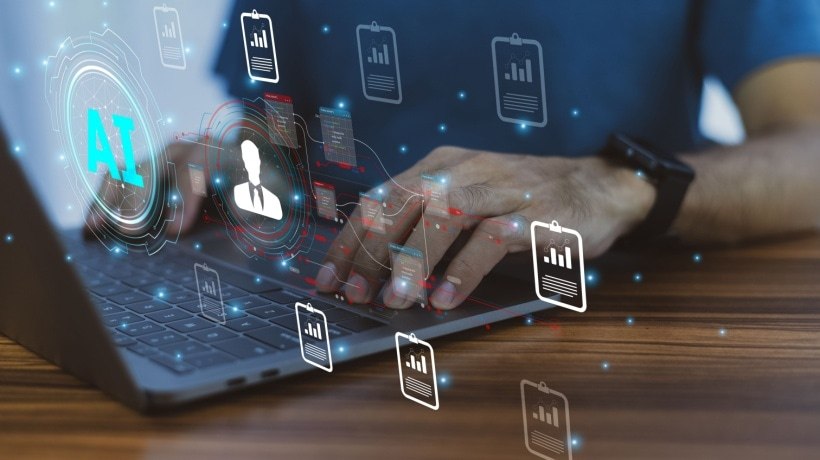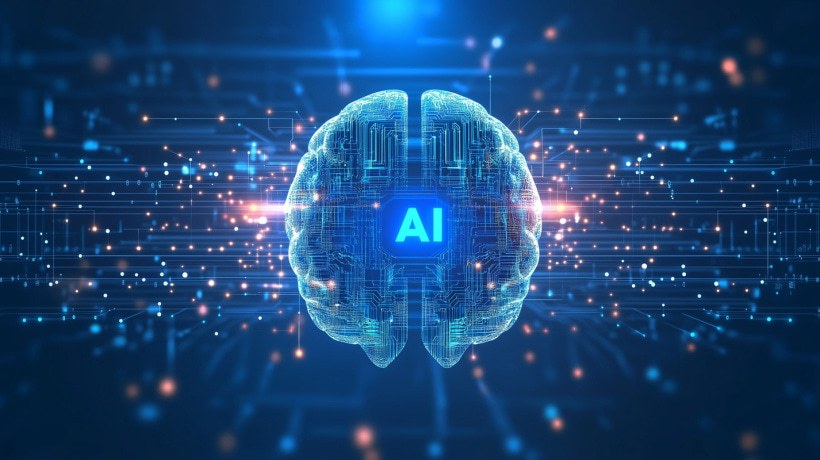The Rise Of Agentic AI And AI-First Learning Platforms
Dr. RK Prasad founded CommLab India in 2000 and nurtured it from concept to commercial success. He has decades of experience in corporate training, university teaching, and eLearning. Today, he speaks with us about how AI is not just a productivity tool but a paradigm shift reshaping the future of L&D. RK will also share real-world success stories from organizations that have adopted AI in their learning strategies.
While AI is often viewed as a productivity tool, how do you think it plays an even bigger role in reshaping the future of Instructional Design, corporate learning strategies, and workforce readiness?
Artificial Intelligence (AI) is no longer just a productivity enhancer. It has evolved into a strategic organizational capability that is transforming how businesses learn, adapt, and perform. Today, success depends on an organization's ability to close the AI literacy gap—the distance between technological potential and the capability to apply AI effectively and responsibly. This shift has profound implications for Instructional Design, corporate learning, and workforce readiness.
In leading organizations, AI is now viewed as a core business competency, not a technology project. Corporate learning strategies are being redesigned to develop AI literacy across all levels of the workforce, from executives to frontline employees. Instructional Design (ID) is playing a crucial role in this transition, moving beyond traditional training delivery to enable the development of role-specific learning paths that integrate people, processes, and technology. These paths ensure that every learner acquires the AI capabilities most relevant to their function and context.
This evolution is driving a fundamental change in how learning initiatives are conceived and measured. Corporate learning is shifting from fragmented, one-off programs to strategic capability-building efforts that align closely with business outcomes. AI literacy, governance, and ROI measurement must now progress together under an integrated framework. Learning programs are expected to deliver tangible results: improved productivity, faster decision-making, cost efficiencies, and measurable business growth.
At the same time, workforce readiness is being redefined as AI readiness. It is no longer sufficient for employees to simply use AI tools; they must also understand and trust them, applying AI ethically and effectively in their daily roles. The greatest barrier to realizing AI's potential is not access to technology but the ability of people to use it with confidence and competence. Building this readiness requires a human-centered approach, where AI augments human capability rather than replaces it.
To institutionalize this transformation, organizations are establishing AI Centers of Excellence (CoEs) to coordinate governance, ensure compliance, and scale successful initiatives across business units. This structured approach creates consistency, accountability, and organizational confidence in the responsible use of AI.
The measurement of success in this new paradigm goes beyond course completions or adoption metrics. Key indicators now include AI literacy rates across roles, the number of AI-enabled workflows, engagement in capability programs, and business impact metrics such as reduced cycle times, cost savings, and operational efficiency gains. These metrics reflect the organization's maturity in integrating AI into its core processes and culture.
Ultimately, AI is not just transforming what people learn but redefining how organizations build capability, measure success, and sustain competitiveness. Instructional Designers and learning leaders now stand at the forefront of this evolution. Their role is shifting from content creators to capability architects, responsible for shaping a workforce that is AI-literate, agile, and ready to lead in an increasingly intelligent enterprise landscape.
Based on your experience, why is it so essential to strike a balance between AI-powered automation and uniquely human capabilities? Why does the future lie in hybrid human-AI collaboration?
AI has evolved from a productivity tool into a strategic capability that amplifies speed, efficiency, and scale. Yet, despite its growing influence, human judgment remains irreplaceable. AI can generate and automate, but it cannot empathize, contextualize, or make ethical decisions. The future of business and learning, therefore, lies in a hybrid model of human-AI collaboration, where technology amplifies human intelligence rather than replacing it.
AI's strength lies in recognizing patterns, automating tasks, and delivering data-driven insights. However, it lacks the ability to interpret nuance, apply moral reasoning, or understand context. These are uniquely human capabilities that shape responsible decision-making and innovation. Humans must retain accountability and final authority over AI-driven outputs to ensure that actions remain ethical, compliant, and aligned with organizational goals. In learning and design, this means that while AI can generate content structures or assessments, human designers bring the empathy and experience needed to make them relevant and effective.
The integration of AI also heightens the need for ethical oversight and governance. As organizations scale their use of generative AI, they must establish clear frameworks to validate content accuracy, cultural sensitivity, and instructional integrity. Transparency—knowing what AI generated, who reviewed it, and how it was approved—is essential to maintaining trust and accountability. In practice, this ensures AI supports learning outcomes without compromising ethical standards or learner experience.
The most successful organizations treat AI not as a replacement for human talent, but as a cognitive partner; a collaborator that complements human expertise. By automating routine tasks, AI acts as a cognitive amplifier, freeing people to focus on creativity, strategy, and innovation. This human-AI partnership enables learning teams to achieve measurable results such as improved efficiency, faster design cycles, and enhanced learner engagement. When aligned with governance and performance metrics, AI adoption moves beyond experimentation to deliver tangible business impact.
Ultimately, sustainable success lies in creating human-centered systems, where technology enhances rather than erodes the human element. Hybrid human-AI collaboration enables organizations to close the AI literacy gap, apply technology responsibly, and design learning systems that are adaptive, efficient, and ethical.
AI delivers the scale and precision that modern enterprises demand, but only humans provide the empathy, context, and moral judgment that give technology its true purpose. The future of learning and business will belong to organizations that master this balance; where AI empowers human potential, and humans give AI meaning.
Can you share some real-life success stories from organizations that have adopted AI in their L&D strategy?
Unilever – Driving "Desire at Scale" With AI
In 2025, Unilever launched its "Desire at Scale" strategy, embedding AI across marketing and brand operations to blend creativity with scale. Its in-house AI tool Sketch Pro and brand governance system Brand DNAi enable rapid content generation while preserving brand identity, reducing production time by 30% and doubling engagement metrics such as video completion rate (VCR) and click-through rate (CTR).
Initiatives like Closeup's "SuperShoots" produced 100+ assets in three days across four markets, while "Recipe Intelligence" under Unilever Food Solutions achieved 96% satisfaction and 30% repeat use. Unilever calls it "human creativity powered by intelligence", showcasing how AI amplifies innovation without replacing human insight.
"AI-Enhanced Learning Ecosystem" – Collaborative Content Development
In a Chief Learning Officer article, a large organization's internal initiative is profiled where AI is embedded in content pipelines. AI serves as a "co-creator" rather than a tool, collaborating with content Subject Matter Experts (SMEs) and IDs to generate drafts, suggest pathways, and optimize reuse.
The AI-enhanced system reduces iteration cycles and lets content teams focus on refinement, review, and alignment. This is a mature model where AI becomes part of the learning ecosystem rather than a one-off gadget.
IBM – "Your Learning," AI Upskilling Guidance And AI-Enabled HR
IBM's "Your Learning" marketplace and broader AI upskilling programs use AI to tag content, recommend role-specific learning, and automate HR workflows, helping free HR stakeholders for strategic work and improving learning personalization and productivity. IBM has also published practical guidance and enterprise reports on AI upskilling.
Is there a recent research collaboration or development project our readers should know about?
Absolutely. I'm delighted to share that CommLab India has recently partnered with Lancaster University on a pioneering global research study to explore how Artificial Intelligence is transforming employee learning and development across large organizations.
This collaboration aims to understand not just how AI is being used today, but how it can be leveraged to create more innovative, personalized, and impactful workplace learning experiences. The study focuses on organizations with over 10,000 employees across North America and Europe, capturing real-world insights into the opportunities and challenges of integrating AI in workplace learning.
The research is structured in phases: starting with a global survey to map current practices, followed by in-depth interviews and case studies that will inform a practical framework for AI-driven learning transformation. Together with Dr. Brett Bligh and his team at Lancaster University, we're excited to co-create a body of knowledge that can guide L&D leaders in making AI both strategic and human-centered.
We see this as more than a research partnership. It's a step toward shaping the future of learning with technology enhancing human potential.
Are there any agentic AI or AI-first learning platform trends that L&D teams should have on their radar?
Well, the rise of agentic AI and AI-first learning platforms marks a significant shift in how organizations design, deliver, and manage learning. What's changing now is that AI is no longer just a productivity enhancer – it's becoming an active collaborator in the learning process.
The most promising trend is the emergence of autonomous learning agents that act as personalized digital learning assistants. These agents can guide learners through courses, recommend resources, track progress, and even offer real-time feedback, all while learning from individual behaviors and preferences. Instead of waiting for human prompts, they take initiative, ensuring that learning becomes proactive, contextual, and continuous.
We're also seeing the growth of AI-first authoring and delivery platforms, where AI serves as the creative engine rather than a peripheral tool. These systems can generate course outlines, adapt scenarios, produce assessments, and personalize learning paths at scale. Instructional Designers are evolving from content creators to curators and strategists, focusing on validation, context, and learner experience.
Another trend L&D teams should watch is the development of dynamic skill-mapping and real-time microlearning ecosystems. Agentic systems can identify emerging skill gaps and deliver just-in-time content, creating a more agile and data-driven learning environment.
That said, the success of AI-first learning still depends on maintaining a human-in-the-loop approach. While AI can automate and personalize, humans provide the empathy, judgment, and ethical oversight that ensure learning remains meaningful and trustworthy. The most forward-thinking organizations are adopting co-design models, where human expertise and AI intelligence evolve together and transform learning into a dynamic, adaptive partnership.
In short, the future of corporate learning lies in human-AI collaboration: intelligent systems driving efficiency and personalization, and human learning leaders ensuring relevance, ethics, and impact.
Wrapping Up
A big thanks to Dr. RK Prasad for sharing his insights on agentic AI and achieving an AI-human collaboration in L&D. You can check out CommLab India's website to learn more about how they can provide you with all the services you need without the hassle of managing multiple vendors.
![Q&A Transformative Role Of Artificial Intelligence [Dr. RK Prasad]](https://cdn.elearningindustry.com/wp-content/uploads/2025/10/QA-Transformative-Role-Of-Artificial-Intelligence-Dr.-RK-Prasad.png)







